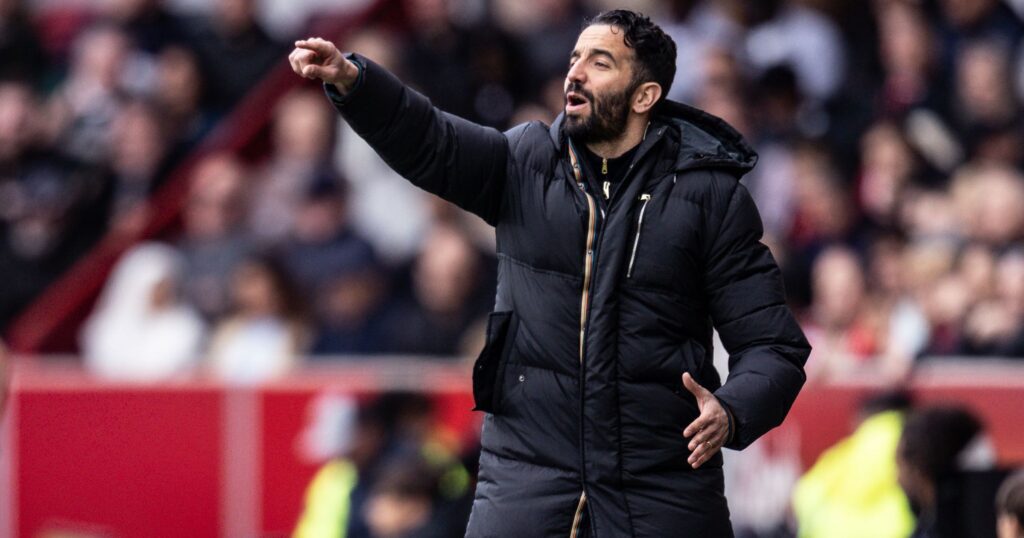Ruben Amorim, the manager of Manchester United, recently faced scrutiny for his decision to rotate his squad significantly during the Premier League match against Brentford, which ended in a disappointing 4-3 defeat. This decision was primarily made to prioritize the upcoming UEFA Europa League clash with Athletic Club, and Amorim was quick to defend his strategy. By making numerous changes to the starting lineup, only three players from the previous match in Bilbao retained their positions. This approach indicated a clear intent to manage player fatigue and target success in multiple competitions, albeit at the risk of league performance.
In the match held at Brentford, the youthful vigor of United’s squad was on display, as 20-year-old Tyler Fredricson joined forces with 18-year-old Harry Amass and 17-year-old Chido Obi, who notably made his first start, usurping Rasmus Hojlund. Remarkably, Obi achieved a landmark by becoming the youngest player ever to start a Premier League match for Manchester United. Such changes reflect a dual focus—integrating young talent into the first team while planning for the club’s broader objectives.
Amorim voiced his thoughts on the necessity of these strategies, emphasizing the responsibility that the club holds in navigating various competitions. He affirmed, “We as a club, we need to understand in this moment we have a big responsibility. We have to prepare a squad for different competitions.” This sentiment conveys an understanding of the current transitional phase United is undergoing, where nurturing young talents could become pivotal for future successes.
Despite the loss, Amorim highlighted some positive elements from the younger players, expressing satisfaction with how they managed to control aspects of the game, albeit with limited scoring opportunities. He acknowledged the team’s struggle with set pieces, indicating an awareness of tactical limitations, particularly in aerial challenges due to their comparatively shorter stature. Amorim lamented the two goals conceded in the second half, despite the team being on the brink of leveling the score, signaling both frustrations and lessons learned as United’s journey continues.
The match narrative took an early twist with Mason Mount scoring and giving United hope. However, the tide quickly turned when a clumsy own goal from Luke Shaw allowed Brentford to equalize, followed by Kevin Schade putting the home side ahead. Schade’s two-goal performance contributed to Brentford’s impressive lead of 4-1, with Yoane Wissa also getting on the scoresheet. The late surge from United, with goals from Alejandro Garnacho and Amad Diallo, injected intrigue before the final whistle, yet it was too late for a comeback.
Injuries compounded United’s troubles, particularly with defender Matthijs de Ligt exiting the match prematurely due to a collision with Bryan Mbeumo. When questioned about the condition of de Ligt, Amorim could only offer hope for a minor ailment, suggesting concern for the player’s health and fit squad ahead of crucial upcoming games. The situation was further complicated by the need to assess Harry Maguire, who also appeared to be at risk of injury, alongside Shaw, whose substitution was strategic in ensuring player availability for the Europa League fixture.
With the ongoing struggles, United currently languishes in 15th place in the Premier League standings, marking their 16th defeat of the season—a staggering statistic that could define one of the club’s most challenging league campaigns in decades. The pressing challenge for Amorim and his squad will be to find balance in performance, managing expectations while building a robust foundation with their emerging talents as they navigate the tumultuous league landscape and European competitions.



